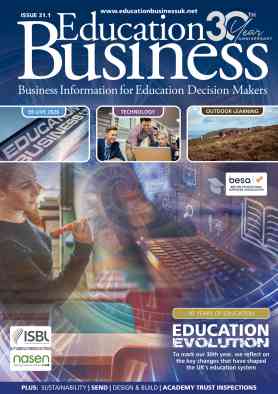Funding the foundations of school sport
 Launched in 2000 the Football Foundation has grown into the nation’s largest sports charity. Money provided by the Premier League, the FA and government (via Sport England) has allowed the Foundation to fund 8,000 community sports projects up and down the country with grants worth £426m.
Launched in 2000 the Football Foundation has grown into the nation’s largest sports charity. Money provided by the Premier League, the FA and government (via Sport England) has allowed the Foundation to fund 8,000 community sports projects up and down the country with grants worth £426m.
From old to new
Our commitment to rebuilding this country’s dilapidated sports facilities lends significant support to the government’s aim of delivering a mass participation community sports legacy from the 2012 Olympic Games. With increased participation a key 2012 objective our evidence proves that participation increases on the sites that we fund by an average of 50 per cent as soon as they open, and then a further 25 per cent over the following four years.
Furthermore, in the last year alone multi-sport participation on Foundation funded facilities increased, on average across all sites, by 10.4 per cent.
It is essential that any project will increase the number of people who can play sports, as opening up access through better community facilities is a key Football Foundation objective. We also know that it is important that our investment is going to the areas with the greatest need, which is why last year 61 per cent of our investment was directed into the 20 per cent most deprived wards across the country.
Better facilities
Our Grass Roots Facilities Fund provides money to develop new or improve facilities for community benefit. These include changing rooms or clubhouses, grass or artificial pitches and multi-use games areas. The maximum grant available from the Foundation for each facilities project is £500,000. However, applicants must show they have tried hard to get other funding for the project and that there is no further money available.
Recently, The FA’s new chairman, David Bernstein officially opened a new third generation (3G) artificial grass pitch at the ARK Academy, Wembley. ARK opened in September 2010 admitting 180 year 7 pupils with half of the places given to children from the Stonebridge and Harlesden areas and half from Wembley. These are categorised as some of the most deprived parts of the country. The academy, which has specialist status in mathematics and citizenship, is mixed, non-denominational and when fully open will take pupils from age three to 18.
The 3G pitch, which was made possible thanks to a Football Foundation grant of £229,136, sits less than a mile from Wembley Stadium and will assist with the delivery of ARK Academy’s commitment to provide an extensive range of curriculum sports, help cater for after school programmes and facilitate a comprehensive community use timetable.
Community participation
Matthew Gajdus, the Football Foundation facilities programme manager who oversaw the ARK Academy project, highlighted how ARK’s commitment to raising community participation helped them win Foundation support: “From an early stage of their application ARK Academy made it clear that the proposed new facilities would be available to all members of the community; they were keen to engage with clubs and teams and offer their students opportunities to develop their football experience.”
The facility will eventually be used by 1,600 school users within curriculum time, principally for football but also other PE activities. Eventually it will host inter and intra school tournaments and become a host venue for feeder primary schools to deliver small sided football training and matches.
The new pitch means that the school will be able to introduce eight new school teams by 2012 and deliver a number of school coaching courses. In addition, the new pitch will provide AFC Wembley with a suitable training facility outside school hours and will help the club increase the number of teams it currently provides for. Moreover, the site will become home to a number of other local football teams with the majority having been consulted throughout the application process and already factored into the programme of use.
Furthermore the new facilities will support a number of local community groups; including VH Whizz kids and REAP (Refugees in Effective and Active Partnership), who will use football activity on site to engage with local groups and deliver educational support.
Stuart Allen, county development manger at the Middlesex County FA, explains that planning for the new facilities goes far beyond obtaining a grant and building the facility: “The grant process involved developing a five-year Football Development Plan (FDP) which identified how ARK Academy would support growth and retention, raise standards, produce better players and develop the workforce. The FDP also details which groups in the community are going to benefit from the facility and why there is a strategic need.”
The Foundation is not satisfied with simply building a facility and then walking away. It works extremely hard to ensure that each facility is located in areas with the greatest potential for community use. It checks every completed facility, every year, to ensure it is delivering the planned outcomes – and ideally exceeding them.
Look out for the June issue of Business Education where we will be giving more tips on how to apply for Football Foundation grants.
For more information
Tel: 0845 345 4555
Web: www.footballfoundation.org.uk
The Football Foundation’s achievements
The scale of just some of the Football Foundation’s achievements are best captured as follows:
- 58 Canary Wharfs – the equivalent height if all Football Foundation funded goal posts were stacked on top of each other.
- 9 Hyde Parks – the area equivalent to all Football Foundation funded pitches.
- 3 Millennium Domes – the area equivalent to all Football Foundation funded pavilions.
- 3 Wembley Stadium sell-outs – the equivalent number of recipients of Football Foundation free kits.
Latest News
10/02/2026 - 09:47
Spending on schools across Scotland has increased by more than £1 billion in real terms over the past decade, statistics show.
10/02/2026 - 09:34
New training to empower school staff to improve mental health and wellbeing support for neurodivergent students has been launched by Anna Freud, a mental health charity transforming care for children and young people.
09/02/2026 - 09:58
Data from BAE Systems’ annual Apprenticeship Barometer found that 63% of parents said they would prefer their child to choose an apprenticeship over a degree after school.
06/02/2026 - 09:59
The work builds on guidance launched by Cardiff Council in autumn 2025, which provides clear and practical advice for schools responding to incidents where weapons are brought onto school premises.
05/02/2026 - 10:40
Schools are invited to take part in a practical, hands-on roundtable at Education Business LIVE 2026, exploring the complex relationship between wellbeing, attendance and behaviour in schools.







